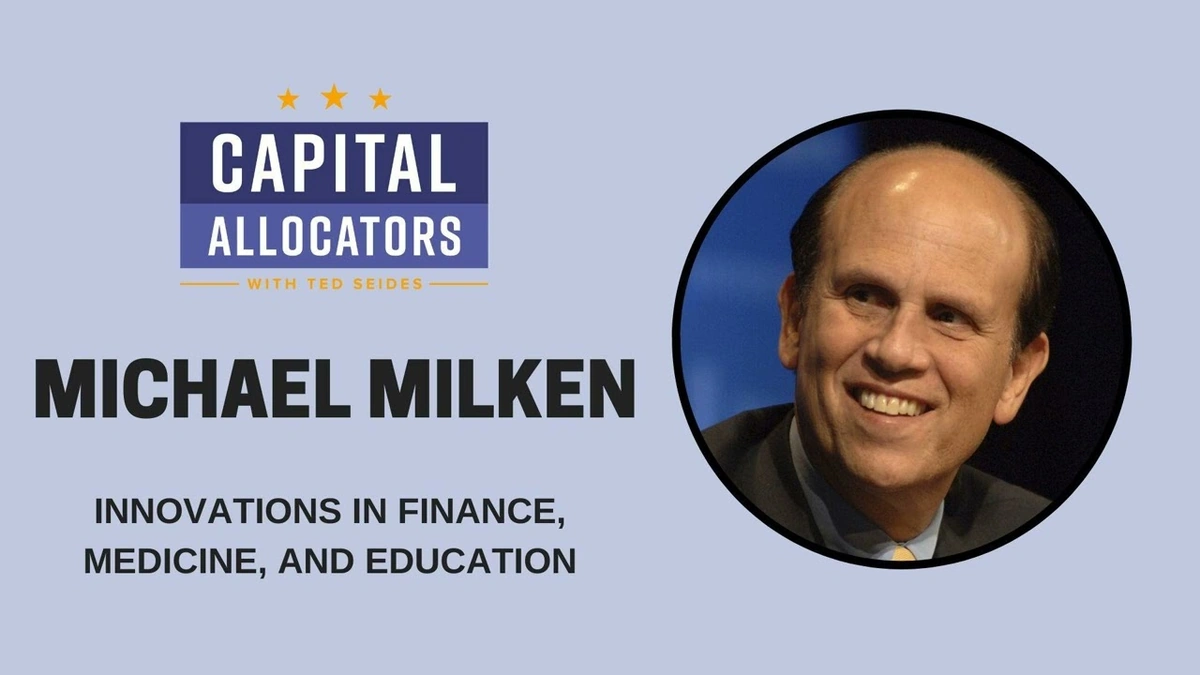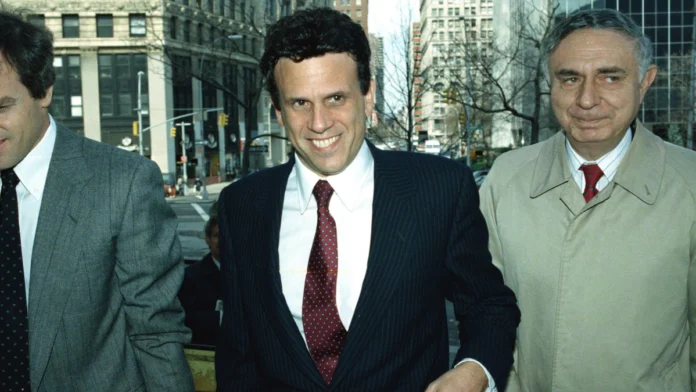Michael Milken. The name alone conjures images of Wall Street in the 1980s – big hair, bigger deals, and the infamous label: “Junk Bond King.” But here’s the thing: dismissing Milken as just that misses a far more complex and, frankly, fascinating story. He wasn’t just about high-yield bonds; he was a pioneer, a philanthropist, and, depending on your perspective, either a financial visionary or a symbol of unchecked greed. So, let’s dive deep. What’s the real story behind this controversial figure?
The Rise of the ‘Junk Bond King’ and High-Yield Finance

Let’s be honest, “junk bonds” doesn’t exactly sound appealing, does it? But Milken saw something others didn’t: potential. These were bonds issued by companies that were considered riskier investments – often startups or firms with a lot of debt. But Milken believed that with careful analysis and diversification, these high-yield bonds could offer investors significantly better returns than traditional investments. He essentially democratized finance, giving smaller companies access to capital they wouldn’t have otherwise had. Think about it – companies that couldn’t get loans from big banks could now fund their growth through the bond market. This fueled innovation and job creation, particularly in emerging industries. What fascinates me is the sheer scale of this transformation. He built an empire at Drexel Burnham Lambert based on this principle.
The Fall From Grace | Insider Trading and Legal Battles
The 1980s were a wild time, and unfortunately, Milken’s success attracted scrutiny. In 1989, he was indicted on 98 counts of racketeering and securities fraud. The accusations centered around allegations of insider trading and manipulating the market for personal gain. After a lengthy legal battle, Milken pleaded guilty to six counts of securities fraud and served 22 months in prison. The conviction and imprisonment of Michael Milken shocked Wall Street and tarnished his reputation. A common mistake I see people make is to think of this as a simple case of black and white. The legal proceedings were incredibly complex, and the line between aggressive investment strategies and illegal activity was often blurred.
Beyond Wall Street | Philanthropy and Medical Research
Here’s where the story takes another turn. After serving his time, Milken dedicated himself to philanthropy, particularly in the area of medical research. He founded the Milken Family Foundation and has contributed billions of dollars to research and treatment for diseases like cancer and prostate cancer. In fact , his focus shifted dramatically. He took his analytical skills and applied them to finding solutions to some of the world’s most pressing health challenges. What initially seemed like a straightforward career implosion became a story of redemption – or at least, a redefinition of success. Many consider Milken one of the top philanthropists who are dedicated to prostate cancer research and education. The Milken Institute continues to address global challenges to this day.
The Legacy | A Complex and Controversial Figure
So, what’s Milken’s legacy? It’s complicated. He’s a figure of both admiration and condemnation. He revolutionized finance, but his methods were questioned. He faced legal consequences, but he dedicated his life to philanthropy afterward. Let me rephrase that for clarity – he’s not easily categorized. He defied expectations and changed the landscape of finance, whether for better or worse. As per the official website , the Milken Center for Advancing the American Dream continues to support this goal. He paved the way for corporate raiders like Carl Icahn who used tactics such as leveraged buyouts to restructure companies and unlock shareholder value. This period was both celebrated and criticized for its impact on the economy.
I initially thought this was straightforward, but then I realized how much nuance there is. His story serves as a reminder that success and failure are often intertwined, and that individuals are rarely defined by a single act or label. Is Michael Milken a financial villain or a misunderstood visionary? The answer, like the man himself, is probably somewhere in between.
What’s the Takeaway? Lessons from Milken’s Journey
Ultimately, Milken’s story offers a potent lesson about the complexities of ambition, the seductive allure of wealth, and the potential for both destruction and redemption. It’s a story that continues to resonate today, particularly as we grapple with issues of financial inequality and the role of Wall Street in shaping our world. While sources suggest that his legacy is still being debated, the official record shows the full picture. He may be remembered as the ‘Junk Bond King’ , but he is also known as a transformative figure who changed the way businesses raise capital. And,maybe that’s the most interesting thing of all.
FAQ About Michael Milken
What exactly were “junk bonds”?
They were high-yield, higher-risk bonds issued by companies that didn’t have stellar credit ratings. Milken saw potential in them, helping these companies grow and providing investors with better returns.
Why did Milken go to prison?
He pleaded guilty to six counts of securities fraud related to insider trading and market manipulation.
What has Milken done since getting out of prison?
He’s focused on philanthropy, particularly medical research, and has contributed billions to finding treatments for diseases like cancer.
Is Michael Milken still involved in finance?
While he is no longer on Wall Street, he continues to be involved in investment through his philanthropic endeavors.
What is the Milken Institute?
The Milken Institute is a non-profit, non-partisan think tank focused on accelerating measurable progress on the path to a meaningful life.
What are the key takeaways from the Michael Milken story?
His story highlights the complexities of ambition, the risks associated with unchecked wealth, and the possibility of both destruction and subsequent renewal.

